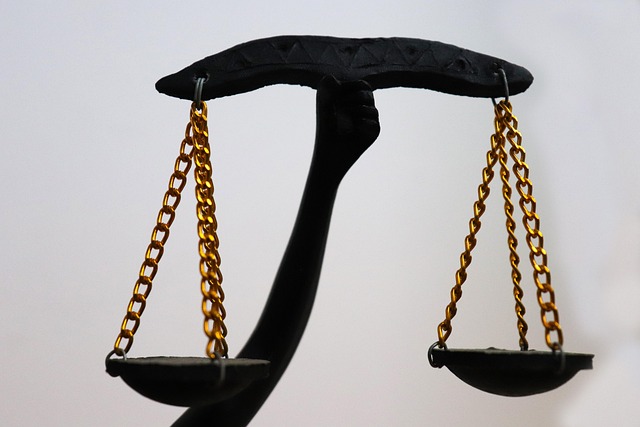In Oregon's legally stringent and fair framework, a criminal defense lawyer is pivotal. They advocate for clients facing criminal charges, protecting their rights from procedural errors or unconstitutional practices. From initial investigations to strategic court arguments, these lawyers play a key role in the state's legal system. Their responsibilities encompass wide-ranging duties, including representation in diverse cases (misdemeanors to felonies), witness interviews, evidence analysis, and plea negotiations. Skilled defense attorneys significantly impact outcomes, ensuring fairness and upholding justice within Oregon's courts.
In Oregon, a robust and fair legal system processes thousands of cases annually, ranging from misdemeanors to felonies. Understanding this intricate process is crucial, especially for those facing charges. This article delves into the Oregon legal landscape, highlighting the essential role of criminal defense lawyers in navigating its complexities. We explore their multifaceted responsibilities, from advocating for clients and investigating cases to safeguarding fundamental rights. Moreover, we examine how skilled defense attorneys can significantly influence outcomes, ensuring fairness and potentially leading to favorable verdicts or reduced sentences.
- Understanding the Oregon Legal System
- – Overview of Oregon's court structure and procedures
- – Types of cases handled within the system (misdemeanors, felonies, etc.)
- Roles & Responsibilities of a Defense Attorney in Oregon
Understanding the Oregon Legal System

The Oregon legal system operates within a framework that prioritizes fairness and due process for all individuals involved in criminal proceedings. In this context, a criminal defense lawyer plays an indispensable role in ensuring the rights of accused persons are protected. As a key player, they serve as advocates for their clients, offering vital guidance and representation throughout the entire legal process.
Understanding the Oregon legal system requires recognizing the distinct roles and responsibilities of a defense attorney. Their duties encompass a broad spectrum, from investigating the case and challenging evidence to developing strategic defenses and advocating on behalf of their clients during court appearances. The impact of a competent criminal defense lawyer in Oregon is profound, as they can significantly influence the outcome of a case by safeguarding against potential errors, misrepresentations, or unconstitutional practices.
– Overview of Oregon's court structure and procedures

Oregon’s court structure is designed to ensure a fair and impartial legal process. The state follows a hierarchical system with local district courts handling initial hearings, followed by appeals reaching the Oregon Supreme Court. This intricate network ensures that cases are heard and decided upon by qualified judges. When it comes to criminal cases, an individual charged with a crime has the right to legal representation, which is where the crucial role of a criminal defense lawyer Oregon comes into play.
The defense attorney roles extend far beyond simply presenting a case in court. In Oregon, these legal professionals are responsible for safeguarding their client’s rights and ensuring a proper defense. They conduct thorough investigations, interview witnesses, scrutinize evidence, and develop strategic arguments to protect their client’s interests. The lawyer responsibilities Oregon includes challenging the prosecution’s claims, exposing any procedural errors, and advocating for alternative sentences if necessary. Ultimately, their duties impact the outcome of cases, ensuring that justice is served within the parameters of the law.
– Types of cases handled within the system (misdemeanors, felonies, etc.)

The Oregon legal system handles a wide range of cases, from minor misdemeanors to severe felonies. Misdemeanors are relatively less serious crimes that include offenses like petty theft, disturbing the peace, and traffic violations. Felonies, on the other hand, are more grave and can involve violent crimes, drug trafficking, fraud, or theft of property valued at a high amount. Regardless of the case type, a criminal defense lawyer Oregon residents engage plays a pivotal role in ensuring fairness within this system.
The defense attorney’s roles and responsibilities in Oregon are multifaceted. They defend clients accused of crimes, challenging the state’s evidence and arguments to protect their rights and freedom. Defense lawyers in Oregon investigate the case, gather evidence, and consult with experts to build a robust defense strategy. They also ensure that their clients’ legal rights are upheld throughout the process, providing guidance and representation in court proceedings. The impact of a skilled defense lawyer is significant, as they can often negotiate plea deals or secure not-guilty verdicts, ensuring the best possible outcome for their clients.
Roles & Responsibilities of a Defense Attorney in Oregon

In Oregon’s legal landscape, a criminal defense lawyer plays an indispensable role in ensuring fairness and safeguarding the rights of individuals accused of crimes. The primary duty of a defense attorney is to advocate for their client’s best interests within the Oregon legal system. This involves a comprehensive understanding of state laws, court procedures, and constitutional rights. They are responsible for providing legal counsel, guiding clients through complex criminal cases, and offering strategic options tailored to each unique situation.
A defense attorney’s responsibilities encompass a wide range of activities. They conduct thorough investigations, examining evidence and testimonies to build a robust defense strategy. This includes challenging the prosecution’s case, cross-examining witnesses, and presenting alternative interpretations of events. Furthermore, they ensure their clients’ rights are protected, providing effective representation throughout pretrial hearings, trials, and appeals, as needed. By mastering these duties, defense lawyers in Oregon significantly impact criminal cases, offering a vital check on potential miscarriages of justice.
